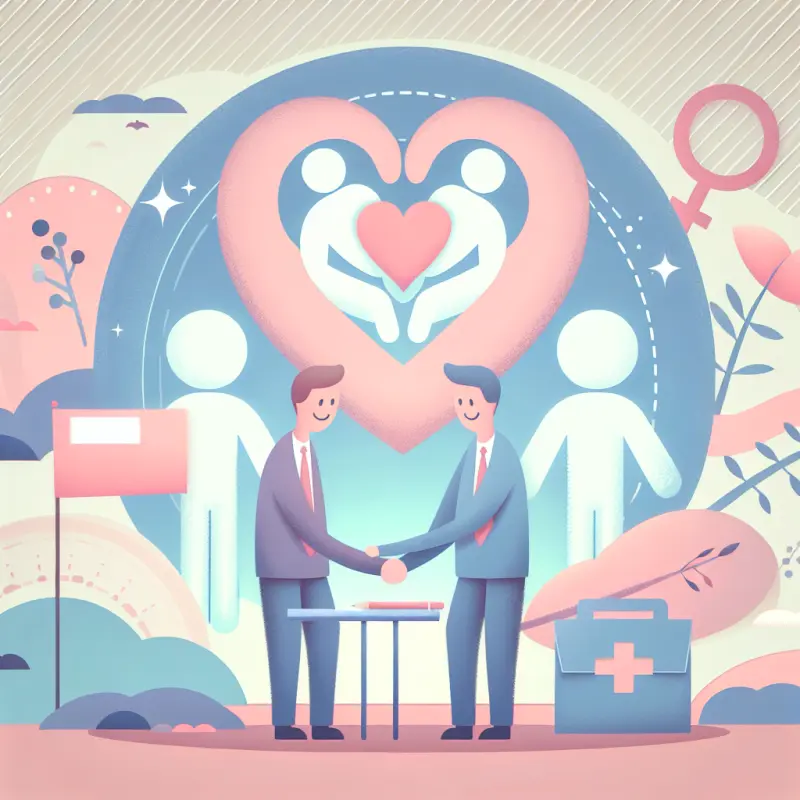Mental Health and Abortion: Emotional Wellbeing and Support

Mental Health and Abortion: Emotional Wellbeing and Support
Introduction
Abortion is a deeply personal and often complex decision that can evoke a range of emotions and reactions. While much of the public discourse around abortion focuses on the legal, moral, and political dimensions, it is crucial to consider the mental health implications for those involved. Understanding the emotional wellbeing of individuals who undergo abortions is vital to providing comprehensive care and support. This article delves into the relationship between mental health and abortion, examines the emotional responses associated with the procedure, and discusses the importance of support systems in promoting mental wellbeing.
Understanding Abortion: A Brief Overview
To comprehend the mental health implications of abortion, it is essential to first understand what the procedure entails. Abortion can be categorized into two main types: medical and surgical.
- Medical Abortion: Involves taking medication to end a pregnancy. This method is typically used within the first 10 weeks of pregnancy.
- Surgical Abortion: Involves a minor surgical procedure to remove the pregnancy tissue from the uterus. This can be performed at various stages of pregnancy, depending on medical guidelines and legal regulations.
Both types of abortion can have different emotional and psychological impacts on individuals, influenced by various personal, social, and cultural factors.
Emotional Responses to Abortion
The emotional response to abortion is not uniform and can vary significantly from person to person. Some individuals may experience relief, while others may face complex feelings of guilt, sadness, or anxiety. The emotional impact can depend on several factors:
Factors Influencing Emotional Responses
-
Personal Beliefs and Values: Individuals with strong personal or religious beliefs about abortion may experience more negative emotions post-procedure.
-
Societal and Cultural Norms: Societal stigma and cultural attitudes towards abortion can exacerbate feelings of shame or isolation.
-
Support Systems: The presence or absence of a supportive network can significantly influence emotional wellbeing.
-
Previous Mental Health History: Those with a history of mental health issues may be more susceptible to experiencing emotional distress after an abortion.
-
Circumstances of the Pregnancy: Unplanned pregnancies, pregnancies resulting from traumatic events, or pregnancies with medical complications can lead to a more complex emotional response.
Common Emotional Reactions
- Relief: Many individuals feel a sense of relief after an abortion, especially if the pregnancy was unplanned or unwanted.
- Sadness and Grief: Some may mourn the loss of potential life or the end of a pregnancy, experiencing feelings akin to grief.
- Guilt and Regret: Feelings of guilt or regret may arise, particularly if the decision was difficult or conflicted with personal values.
- Anxiety and Depression: Anxiety about the future or sadness related to the decision can develop, potentially leading to depression.
The Psychological Impact of Abortion
Research on the psychological impact of abortion is varied, with some studies indicating potential mental health risks and others suggesting minimal long-term effects. It is important to consider both short-term and long-term psychological outcomes.
Short-term Effects
- Immediate Emotional Reactions: In the weeks following an abortion, individuals may experience a mix of emotions, including both positive and negative feelings.
- Coping Mechanisms: The way individuals cope with the emotional aftermath can influence their short-term psychological wellbeing.
Long-term Effects
Long-term psychological outcomes can depend on various factors, including the individual's support system and coping strategies.
- Resilience and Adaptation: Many individuals adapt well over time, integrating the experience into their lives without significant long-term distress.
- Potential for Mental Health Disorders: While most individuals do not experience lasting mental health issues, some may develop conditions like depression or anxiety, particularly if they have pre-existing vulnerabilities.
The Role of Support Systems
Support systems play a critical role in helping individuals navigate the emotional landscape of abortion. These systems can include:
Personal Support
- Family and Friends: Having a supportive network of family and friends can provide emotional comfort and validation.
- Partners: A supportive partner can share the emotional burden and provide practical and emotional support.
Professional Support
- Counseling and Therapy: Professional mental health support can offer a safe space to process emotions and develop coping strategies.
- Support Groups: Joining support groups with individuals who have had similar experiences can foster a sense of community and understanding.
Community and Societal Support
- Non-Profit Organizations: Many organizations offer resources and support for individuals post-abortion, including hotlines and counseling services.
- Public Awareness and Education: Increasing public awareness about the emotional aspects of abortion can reduce stigma and promote understanding.
Strategies for Promoting Emotional Wellbeing
There are several strategies individuals can employ to promote their emotional wellbeing following an abortion:
Self-care Practices
- Mindfulness and Meditation: Engaging in mindfulness practices can help individuals stay grounded and reduce anxiety.
- Physical Activity: Regular exercise can improve mood and reduce stress.
- Creative Expression: Activities like journaling, art, or music can provide an outlet for emotions.
Building a Support Network
- Open Communication: Encouraging open dialogue with trusted individuals can foster emotional connection and support.
- Seeking Professional Help: Consulting with mental health professionals can provide tailored support and guidance.
Educating and Empowering
- Educating Oneself: Understanding the facts about abortion and its emotional impact can empower individuals to make informed decisions.
- Advocacy and Activism: Engaging in advocacy efforts can provide a sense of purpose and contribute to societal change.
Conclusion
The relationship between mental health and abortion is complex and multifaceted, influenced by a myriad of personal, social, and cultural factors. While the emotional responses to abortion can vary widely, it is crucial to acknowledge and address the mental health needs of those who undergo the procedure. By fostering supportive environments and promoting open dialogue, we can help individuals navigate their emotional journeys with compassion and understanding. Ultimately, ensuring access to comprehensive mental health support and reducing societal stigma are essential steps in supporting the emotional wellbeing of individuals who choose abortion.